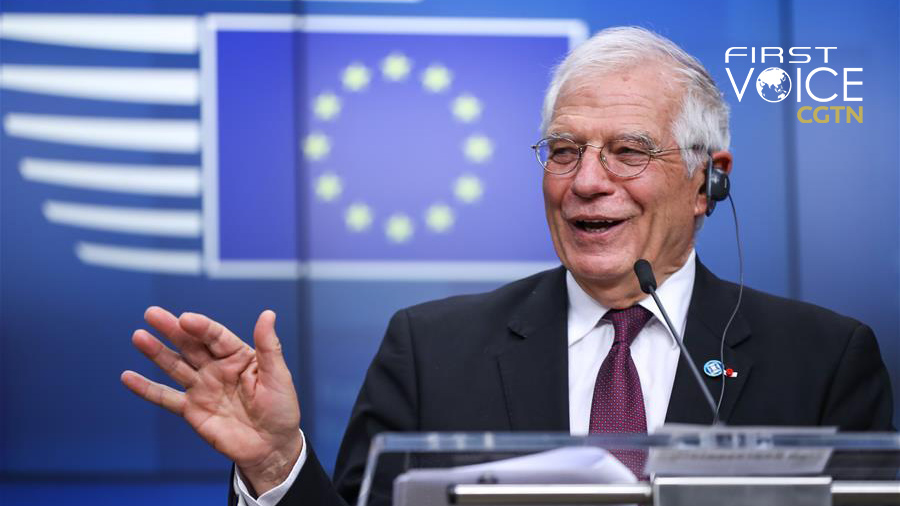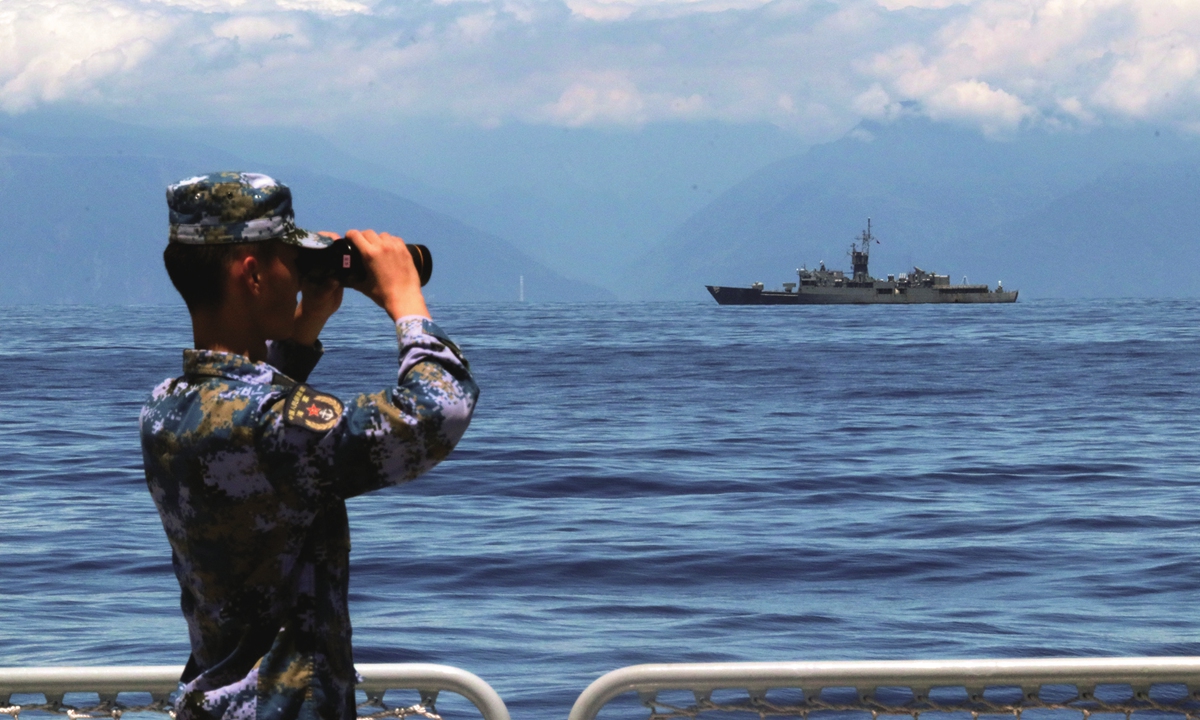
EU High Representative for Foreign Affairs and Security Policy Josep Borrell. [Photo/Xinhua]
Editor's note: CGTN's First Voice provides instant commentary on breaking stories. The column clarifies emerging issues and better defines the news agenda, offering a Chinese perspective on the latest global events.
The High Representative of the EU for Foreign Affairs and Security Policy Josep Borrell called on European navies to patrol the Taiwan Straits in an article published in Le Journal du Dimanche on Saturday. The Taiwan question "concerns us economically, commercially and technologically," said Borrell, who stressed the need to "signify Europe's commitment to freedom of navigation" in the area.
Borrell's remarks are extremely dangerous that could lead to severe consequences on China-EU ties and Europe's future.
To begin with, Borrell, known as the "foreign minister" of Europe, lacks the basic understanding of the Taiwan question and the situation in the Straits. Patrolling will only hinder, not promote, regional trade. Freedom of navigation has never been an issue in the Taiwan Straits. The Chinese mainland is the biggest stakeholder of prosperity in the region. This is a simple fact. Against this backdrop, any vessels engaged in legal trade activities have been left alone.
However, if European countries insist on deploying warships to the Straits, it will surely fuel tensions and so have tremendous negative effects on trade. "Protecting" the EU's trade with Asia-Pacific partners by patrolling could only turn out to be counterproductive.
Secondly, being at the helm of EU diplomacy, Borrell lacks rationality in managing ties with China. While voices calling for more strategic autonomy are becoming louder among European leaders, Borrell is happy to make Europe a puppet of the United States. Dancing to the U.S. tune has repeatedly turned out not to be in the long-term interest of European countries, but apparently, Borrell has not learned that lesson.
Borrell made the remarks following the G7 foreign ministers' meeting where top diplomats from the group took a tough stance on the Taiwan question under U.S. pressure, and so Washington is believed to have influenced the overall tone of Borrell's words on Taiwan. The U.S., after having made boatloads of money from wars in the Middle East, is diverting attention to the Asia-Pacific region and has ramped up efforts in hyping the Taiwan question in recent years. To make Europe into a tool and a bargaining chip to play against China, American politicians have been trying to make the Taiwan question into a European "crisis."

A People's Liberation Army soldier looks around with a telescope, as the Navy of the PLA Eastern Theater Command continues drills the waters around the island of Taiwan, August 5, 2022. [Photo/Xinhua]
While Washington has to create wars to feed its military-industrial complex – a pillar of U.S. hegemony – European countries reap only losses from tensions in the Taiwan Straits. Any "tit for tat" countermeasure against the EU patrolling the Taiwan Straits will bring lose-lose outcomes for European countries. Admittedly, China and the EU may have some ideological differences, but they see no fundamental conflict of interests. European countries need China as a partner on global issues, and the EU cannot afford to decouple from and deteriorate its ties with its largest trading partner.
French President Emmanuel Macron has already cautioned against the scenario of his country being caught in the middle of an escalation between Washington and Beijing. "Being an ally (with the U.S.) does not mean being a vassal… does not mean that we don't have the right to think for ourselves," Macron made the remarks this month.
Thirdly, Borrell – attempting to "deter" the Chinese government's "military aggression" by patrolling in the Taiwan Straits – has no knowledge of the real strength of the EU. The Taiwan question concerns China's sovereignty and territorial integrity. The People's Liberation Army (PLA) has the determination and enough strength to defend its homeland.
In the meantime, European countries – already been caught in a slew of domestic headaches – have suffered a lot from U.S.-instigated conflicts. Europe cannot even ensure its strategic autonomy in its interactions with the world's major powers. In this context, does Europe have the strength to counter and "deter" the PLA? Borrell should figure this out before dredging up the Taiwan question.
As the EU's top diplomat, Borrell lacks the basic understanding of the Taiwan question and the rationality in dealing ties with China. Blindly following the U.S., Borrell is sacrificing the interests of European countries for U.S. hegemony.

 中文
中文



